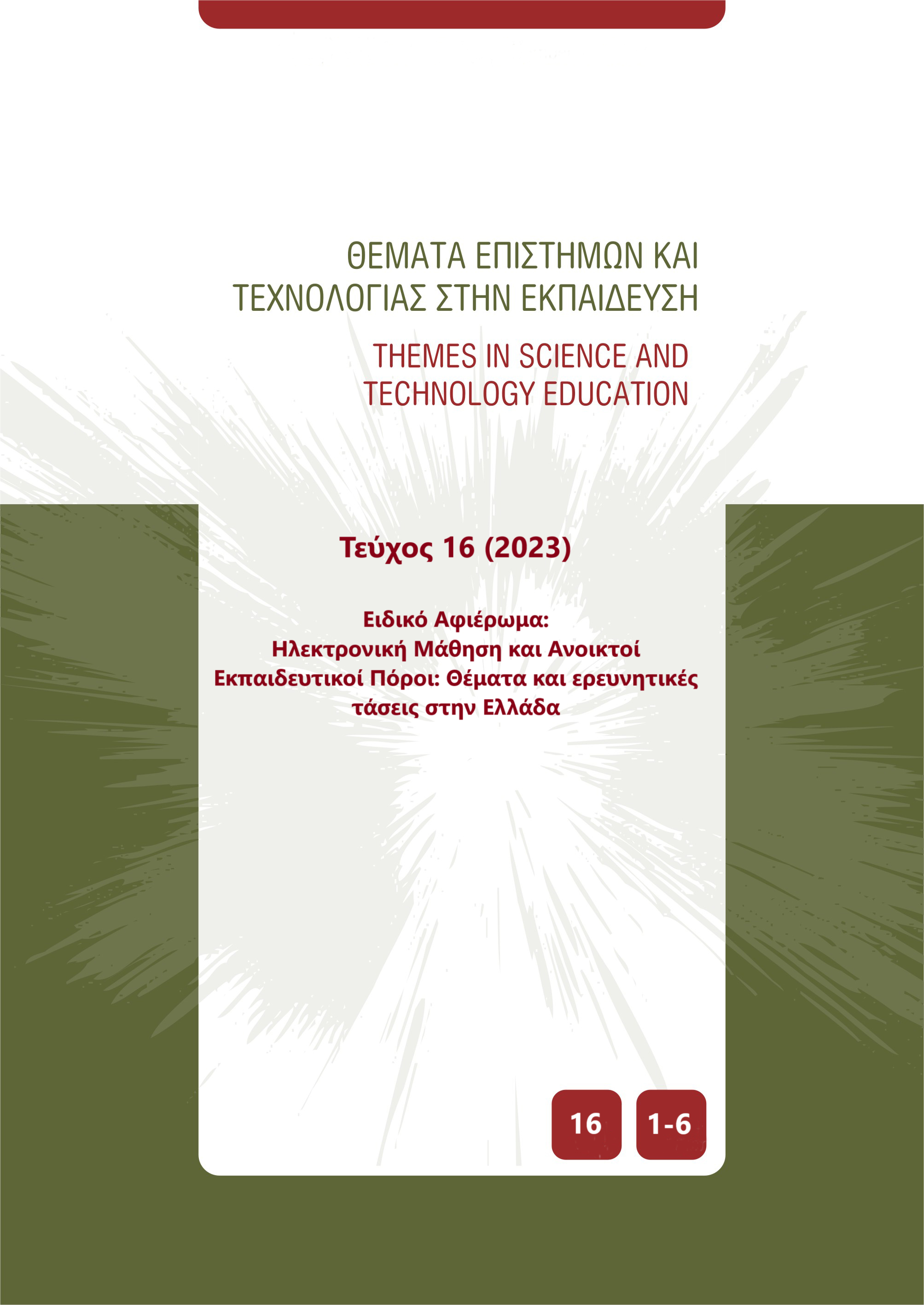Μηχανική Μάθηση: Ο ρόλος του κειμένου στην πρόβλεψη της επίδοσης διαμέσου βιντεοδιαλέξεων

Περίληψη
Η παρούσα εργασία εξετάζει τη χρήση της Επεξεργασίας Φυσικής Γλώσσας με στόχο την πρόβλεψη της επίδοσης των φοιτητών σε περιβάλλοντα ηλεκτρονικής μάθησης. Παρόλο που η πρόοδος στον τομέα αυτόν είναι ενθαρρυντική, λείπουν μέχρι σήμερα συστηματικές ερευνητικές προσπάθειες να διερευνηθεί πλήρως το δυναμικό της Επεξεργασίας Φυσικής Γλώσσας για την ανάλυση και πρόβλεψη της επίδοσης. Στην έρευνα αυτή συμμετείχαν 85 φοιτητές, οι οποίοι παρακολούθησαν 6 βιντεοδιαλέξεις, για κάθε μία εκ των οποίων κλήθηκαν να συντάξουν μια μικρή περίληψη. Από την επεξεργασία των περιλήψεων προέκυψαν δύο σύνολα μεταβλητών (πρωτογενούς και επεξεργασμένου κειμένου) που τροφοδότησαν οκτώ αλγόριθμους μηχανικής μάθησης. Στις περισσότερες βιντεοδιαλέξεις παρατηρήθηκε μια μικρή διαφοροποίηση τιμών των μέτρων ακρίβειας ταξινόμησης και F1 ενώ η λογιστική παλινδρόμηση (LR) ήταν ο αλγόριθμος που επέφερε τα υψηλότερα επίπεδα ακρίβειας ταξινόμησης τόσο για το πρωτογενές όσο και για το επεξεργασμένο κείμενο. Τα αποτελέσματα της ανάλυσης αναδεικνύουν ότι οι περιλήψεις που δημιουργήθηκαν από τους φοιτητές μπορούν να αποτελέσουν ένα υποσχόμενο σύνολο χαρακτηριστικών για την πρόβλεψη της επίδοσης μέσω βιντεοδιαλέξεων.
Λεπτομέρειες άρθρου
- Πώς να δημιουργήσετε Αναφορές
-
Ραγάζου Β., Παπαδήμας Χ., & Καρασαββίδης Η. (2023). Μηχανική Μάθηση: Ο ρόλος του κειμένου στην πρόβλεψη της επίδοσης διαμέσου βιντεοδιαλέξεων . Θέματα Επιστημών και Τεχνολογίας στην Εκπαίδευση, 16(1-6), 19–38. https://doi.org/10.12681/thete.40002
- Ενότητα
- Articles





